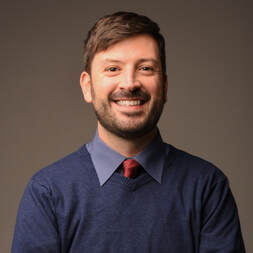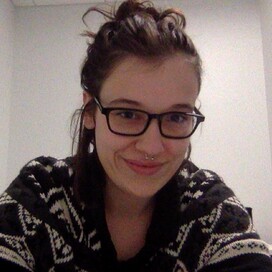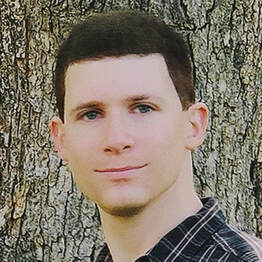|
Introduction On November 12, 2021, the Journal of Science Policy & Governance (JSPG) in collaboration with Rice University's Baker Institute for Public Policy-Science and Technology Policy Program organized a workshop featuring winning authors from the JSPG Special Issue on Shaping the Future of Science Policy in partnership with the American Association for the Advancement of Science (AAAS) and sponsored by the Kavli Foundation, published earlier this year. This event provided a framework for early career voices to be heard in advancing a better future by responding to the OSTP ideation challenge “The Time is Now: Advancing Equity in Science and Technology.” During the workshop, participants crafted a joint response to the challenge, which was submitted to OSTP, encompassing early career voices. This blog post contains responses from the event coming from winning published authors and other early career participants. The event was framed by remarks from Dr. Sudip Parikh, CEO of AAAS and also JSPG advisory board member, who co-authored the cover memo for the Special Issue with Dr. Cynthia Friend, President of the Kavli Foundation. Below is a quote from Dr. Sudip Parikh from the video. "It is always exciting for me to see people contributing to the future of Science and Technology Policy. But it's especially exciting when it's early career scientists and engineers who are going to be directly affected by the policies that we put in place now. Also excited by the fact that you're working with JSPG to take your ideas into action through this challenge. I'm looking forward to seeing some of your policy and act ideas enacted right away through this challenge, but also in the future.“ - Dr. Sudip Parikh Panel discussion Winning authors from the policy position paper competition participated as panelists and discussed their publication in the special issue, including their ideas of how OSTP can address these issues, and led breakout rooms to reimagine a more equitable future for science and technology policy in relation to their publication topics. The panel discussion was moderated by Senior Policy Advisor at the MIT Washington Office, Dr. Kate Stoll, who has long been interested in the role of students in the research and innovation enterprise. Below are summaries of ideas related to each publication topic from winning authors and other early career researchers who participated in the event, and contributed to the OSTP submission in response to this challenge. Inclusive Science Policy and Economic Development in the 21st Century: The Case for Rural America Event recording Publication Special Issue
Background: The publication captures inclusive science policy and economic development, with a focus on rural America. Scientific research over the 20th century brought many benefits for society. But this innovation ecosystem is not accessible to everyone in the United States. Problem and solution: There is a clear divide between rural and non rural areas in access to science innovations, and who can benefit from these innovations. The publication argues that rural development initiatives could be more broadly reframed as a form of science policy, focusing on education as one policy silo. Some proposed solutions are that we need more sustained federal investment in rural communities, and maximizing the effect and the investment for rural education both at the K 12 and higher ed levels. It also covers diversifying the economy in rural locations. What OSTP can do: There should be a more coordinated federal investment to rural communities. It would be really interesting for OSTP to step into that space and invest more in inclusive approaches to science policy. Rural development could, in many ways, be reconceptualized, as science policy, or science policy, being an important facet of rural development could be really interesting. OSTP could link these threads together, and help deliver innovations that come from this investment into various geographic corners of the country. A Call to Diversify the Lingua Franca of Academic STEM Communities Event recording Publication Special Issue
Background: Science is better when more people can participate. In STEM academia, there is an enormous burden on individuals who do not speak English as their first language, including a financial burden to translate their works into other languages, if they are going a bilingual route. Problem and solution: This problem causes quite a bit of homogeneity in science. But it is also detrimental to U.S. science, because not all of the world in science can publish in English. We propose that there should be structure from a top down level for hosting and translating science into different languages. Some of the specifics to consider include, how to choose which languages to translate into. There is also a critical point at which it becomes detrimental to be publishing in too many languages, and we cover this balance in the paper. What OSTP can do: A proportion of federal grants that are given to researchers could go towards paying for translation services. Government agencies could negotiate better rates for people who are seeking translations for their papers. Translations are quite expensive, sometimes up to $10,000. Standardization for translations would be really excellent, in terms of ways to maximize resources and increase transparency. Demographics of science and language diversity in science is not well documented, and not well known. It would be really nice if there were dedicated resources to keeping track of this type of diversity. We propose adding a question to federal grants that asks about the language that researchers speak other than English. This would allow for evaluating this diversity over a longer period of time. Ensuring Social Impact at Every Stage of Technology Research & Development Event recording Publication Special Issue
Background: Publications are the fundamental backbone of science. As graduate students, we read a lot of papers, and recognize the value that some publications can provide to science advancement and society on a high level. Many of us want to have some kind of meaningful impact on the world, but often the results of research can seem somewhat divorced from the long term impact of science and technology. A large number of publications sit on the proverbial shelf after they’re published, and never influence any kind of real-world developments. As such, when the average person thinks about the development of science and technology, they rarely consider the research process.
Problem and solution: Funding agencies like NSF attempt to use broader impact criteria to evaluate this research and the societal impact, but the criteria are assessed by the same scientists assessing the scientific merit of the proposal. These scientists are not usually in the best position to judge the long term impact of a research proposal, which may go on to affect a large number of different stakeholders. Therefore, I argue in my paper for including these affected stakeholders when judging potential long-term impact, and using those judgments to help determine which proposals to fund. My hope is that this will eventually better connect the public to research, help them to better understand the research process, and ultimately help research be more responsive to their concerns. What OSTP can do: My hope in the long term would be that by bringing different public stakeholders into judging research, that they'll be more aware of what it takes to actually produce some kind of science and technology innovation from the very beginning. And so doing, they'll understand and evaluate research better, and that research will be more responsive and attentive to their particular concerns. OSTP can draw up a framework by bringinging stakeholders together for particular research areas, such as the general public, journalists. Then also developing some online courses for these stakeholders to evaluate research in different disciplines. Overall summary: To conclude, Dr. Kate Stoll, who moderated the panel, said she was inspired by all three authors in that “the assumption that the status quo doesn't have to persist: we know we can do science better; we know there are specific and actionable ways to make the scientific enterprise and its outcomes more inclusive, and now what we need is the follow through, so these ideas are a great start to that process and this challenge is a great way to engage.” Event participants: Andrew Crain*, Director of Experiential Professional Development, University of Georgia (UGA); PhD candidate, UGA Institute of Higher Education Claire Cody, graduate student, Yale University David Lockett, K-16 Outreach/Grants Proposal Development Specialist School of Applied Computational Sciences, Meharry Medical College Ravichandra Mondreti, Independent Researcher and Consultant, Bengaluru, India Lindsay DeMarchi*, graduate student, Northwestern University Kristifor Sunderic, AAAS STPF, National Cancer Institute (NCI) Mohammed Baaoum, graduate student, Virginia Tech Shakiyya Bland, Albert Einstein Distinguished Educator Fellow, U.S. Department of Interior Jeremy Pesner*, graduate student, Carnegie Mellon University Nicole Comfort, postdoctoral researcher, Columbia University Sonia Roberts, postdoctoral researcher, Northeastern University Surangi Perera, postdoctoral researcher, National Institute of Dental and Craniofacial Research (NIDCR) Adriana Bankston, JSPG CEO & Managing Publisher (organizer) *published authors and competition winners We would also like to thank Dr. Kate Stoll for moderating the panel and contributing to the discussions. This post was written and compiled by Adriana Bankston. Comments are closed.
|
- Home
- About
-
Volumes
- Volume 24 Issue 01
- Sigma Xi and Rita Allen Foundation - Civic Science for Transformative Policy Solutions to Societal Challenges
- Volume 23 Issue 01
- APS Policy and Governance on Science, Technology and Global Security
- IAI Development Policy and Global Change Science to Achieve the Vision of Sustainable Americas
- Volume 22 Issue 01
- GHFUTURES2030 Strengthening Youth-centered Policy and Governance of Digital Transformations in Health.
- UNESCO AND MGCY OPEN SCIENCE POLICIES AS AN ACCELERATOR FOR ACHIEVING THE SUSTAINABLE DEVELOPMENT GOALS
- Volume 21 Issue 01 >
- JSPG and UCL STEAPP Special Topics: Innovations in Science Diplomacy >
- Sigma XI-JSPG Special Issue: Re-envisioning STEM Education and Workforce Development for the 21st Century
- Volume 20 Issue 01
- JSPG Volume 19 Issue 01 (10 Years of Publishing)
- Special Issue: 2021 NSPN-JSPG Policy Memo Competition
- Special Issue: Shaping the Future of Science Policy
- JSPG-UK SIN Special Issue: Climate Change Solutions
- Volume 18 Issue 01
- Special Issue: 2020 NSPN-JSPG Policy Memo Competition
- Volume 17 Issue 01 (Supported by AAAS STPF)
- JSPG-UN MGCY Special Issue: Impacts of Emerging Technologies
- Volume 16 Issue 01
- Volume 15 (Supported by CSPC)
- Special Issue: 2019 NSPN-JSPG Policy Memo Competition
- Volume 14
- Volume 13
- Volume 12
- Volume 11
- Volume 10
- Volume 9
- Volume 8
- Volume 7
- Volume 6
- JSPG-UCS Special Issue: Healthy Food Policy
- Volume 5
- Volume 4
- Special Issue: Hot Topics 2013
- Volume 3
- Volume 2
- Volume 1
- Submit to JSPG
- Announcements
- Events
- Training
- Media Mentions
- Policy in action
- Podcast




